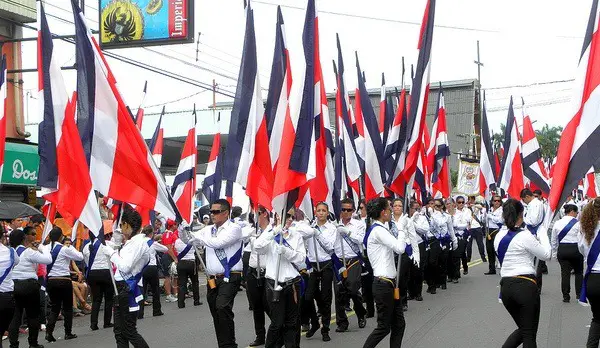
The commemoration of the 199th Anniversary of the Independence of Costa Rica will be carried out under the motto: “I am a country, solidarity, and hope”, and due to the national emergency due to COVID-19, its celebration will be under the educational support of distance learning and through the “I learn at home” strategy.
For this, the 2020 National Holidays Commission, developed a series of Autonomous Work Guides (GTA) to develop during the Civic Week and also established the guidelines for the performance of Virtual Civic Acts.
For the entire educational community and their families to participate, different national, regional, and institutional civic events will be held live and recorded, for those who do not have an optimal internet connection. These events will be broadcast live through the Teams platform and social networks and involve the participation of students with their families through the virtual means available.
Also, virtual lantern exhibitions will be held, where you can enjoy the symbolic tour of the Torch of Freedom. For their part, the Visual Arts advisers and teachers will be in charge for the development of massive activities to teach how to make lanterns and torches with recycled material, and for September 14th, the population has been invited to sing the National Anthem and later go out outside the house in their social bubble with a lantern.
Does being at home mean losing your civility?
Jorge Cartín, National Advisor for Social and Civic Studies of the Ministry of Education, commented that the socialization from home is fundamental to the student in a context of the pandemic, where, being an unprecedented situation in Costa Rican history and with a long period of non-presence in schools, parents and teachers are essential to their education.
“The school is the one that plays an important role and the teacher is the pedagogical mediator who makes the decisions so that the student incorporates attitudes in favor of national celebrations and commemorations. How do you do that? Insisting on the celebration throughout the year, complying with the school calendar in which there are commemorations on the one hand and school events on the other,” said Cartín.
According to the advisor, aspects that were being done in the classroom can continue to be promoted at home and thus promote civility. “For example, a teacher can have his students, with the help of their managers, design a plan for a lantern and light it with some battery-operated candles and they can perfectly put it outside the house, decorate the house properly With the use of homeland symbols, placing a flag, placing a doll with the national colors, that does not hurt, the important thing is that the student body knows how to use it and little by little achieve a formative purpose that instills values that prepare for the well-intentioned exercise of citizenship … then there is no excuse to celebrate this month by not being present in the classrooms “, he added.

